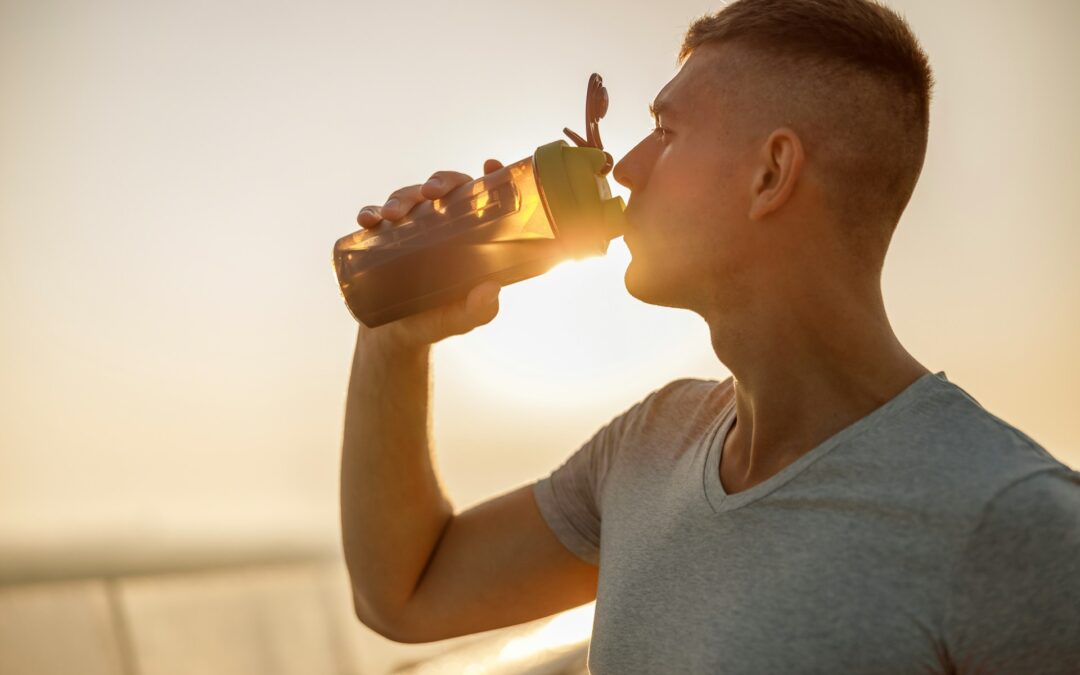Proper hydration is a cornerstone of overall health, playing a vital role in numerous bodily functions, including temperature regulation, digestion, circulation, and even cognitive function. However, maintaining optimal hydration is often overlooked or misunderstood. In this comprehensive guide, In & Out Urgent Care will provide expert tips on understanding the importance of hydration, determining your daily water intake, recognizing the signs of dehydration, and establishing healthy habits to ensure you stay consistently hydrated for optimal well-being.
At In & Out Urgent Care, we understand that our Metairie, New Orleans, and Covington patients value efficient and compassionate care for their minor injuries and illnesses. We also recognize that a well-rounded approach to wellness extends beyond immediate medical solutions. This is why our team of dedicated healthcare professionals is eager to share valuable insights on proactive, preventative measures, such as proper hydration, that can improve your overall quality of life.
1. The Science of Hydration: Understanding Its Importance
Proper hydration is crucial for optimal body function, as water plays a major role in a wide range of physiological processes. Here are a few key reasons why staying hydrated is essential to overall wellness:
- Temperature regulation: Water helps stabilize body temperature by facilitating sweat production and evaporation, keeping you cool during physical activity or in warm environments.
- Proper digestion: Adequate hydration is necessary for the digestive system to function efficiently, preventing constipation and maintaining gut health.
- Circulation and nutrient transport: Water enhances blood circulation and the transportation of nutrients to cells and waste products away from them, contributing to overall vitality.
- Cognitive function: Maintaining proper hydration is crucial for brain health, as even mild dehydration can cause headaches, irritability, and difficulty concentrating.
2. Determining Your Daily Water Intake: A Personalized Approach
While generalized guidelines can provide a starting point, understanding your unique daily water intake requirements is essential for maintaining proper hydration. Consider these factors when determining your individual hydration needs:
- Age and sex: Adult men typically require more daily water intake than women due to differences in body composition. Your water needs may also change as you age, requiring adjustments over time.
- Activity level: Higher levels of physical activity increase water loss through sweat, necessitating greater water intake to replenish lost fluids.
- Climate and environment: Hot, dry, or windy conditions can accelerate water loss, while higher altitudes can also increase your body’s water needs.
- Health status: Illness, fever, or pregnancy may influence your daily water intake requirements, so be sure to adjust your hydration strategy accordingly.
When in doubt, consult a healthcare professional to help you determine the appropriate amount of water intake for your unique needs.
3. Recognizing the Signs of Dehydration: Addressing the Problem Early
Recognizing and addressing the signs of dehydration early can prevent complications and ensure your body continues to function optimally. Look for these common indicators of dehydration:
- Increased thirst: One of the earliest signs of dehydration is feeling thirsty, signaling a need for increased fluid intake.
- Dark and strong-smelling urine: Dark yellow or amber-colored urine with a strong odor indicates a lack of adequate hydration.
- Fatigue and dizziness: Dehydration can lower blood volume, causing headaches, fatigue, dizziness, or lightheadedness.
- Dry mouth, lips, or skin: A decrease in saliva production, accompanied by dry lips or skin, can signal the need for additional fluids.
If you suspect dehydration, act promptly by increasing your water intake and reducing exposure to heat or other contributing factors.
4. Establishing Healthy Hydration Habits: Tips for Success
By cultivating healthy habits related to hydration, you can consistently meet your body’s daily water intake needs and enjoy the benefits of optimal well-being. Try incorporating these strategies into your daily routine:
- Carry a reusable water bottle: Keep a refillable water bottle handy at all times as a constant reminder to drink water and easily track your consumption.
- Hydrate before and during exercise: Pre-hydrate before workouts and ensure you consume water regularly throughout long-duration activities to replenish lost fluids.
- Incorporate hydrating foods: Consume water-rich fruits and vegetables, such as watermelon, cucumber, and oranges, to help meet your hydration goals.
- Set reminders: Use smartphone apps or set periodic alerts to remind you to drink water throughout the day.
Commit to making hydration a priority, and be open to adjusting your strategy as your needs change throughout your life.
5. Benefits of Proper Hydration for Athletic Performance
Proper hydration is key for athletes to perform at their best and avoid health complications. Here are a few benefits of optimal hydration for athletic performance:
- Maintains electrolyte balance: Electrolytes, such as sodium and potassium, play a crucial role in muscle contraction and nerve function. Proper hydration helps maintain electrolyte balance, preventing cramps, fatigue, and muscle weakness.
- Improves endurance: Dehydration can cause a decrease in blood volume, leading to reduced oxygen supply to muscles and a decrease in endurance. Drinking enough water can help maintain blood volume, allowing athletes to perform at a higher level for longer periods.
- Facilitates recovery: Adequate hydration helps flush out waste products like lactic acid that can build up during physical activity, reducing muscle soreness and facilitating faster recovery.
- Enhances cognitive function: Proper hydration is essential for optimal cognitive function, allowing athletes to stay focused and perform complex movements with precision.
Athletes should aim to drink water before, during, and after exercise to maintain proper hydration levels. Electrolyte-enhanced drinks can also help replace lost fluids and electrolytes during intense activity.
Conclusion
Staying properly hydrated is essential for optimal health and well-being. By understanding the importance of hydration, determining your unique daily water needs, recognizing the signs of dehydration, and establishing healthy water consumption habits, you can promote health, vitality, and resilience.
At our walk-in clinic, In & Out Urgent Care, we’re dedicated to providing prompt healthcare solutions for minor injuries and illnesses to residents of Metairie, New Orleans, and Covington. Schedule a visit today to experience our compassionate care and valuable insights on preventative measures to maintain optimal health and well-being.

